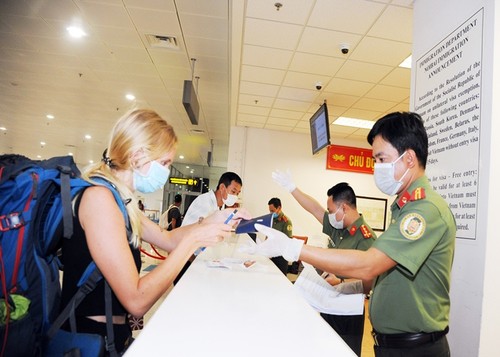 Immigration policy has always been revised to create favorabel conditions for foreigners to enter and exit Vietnam. (photo: cand.com.vn) Immigration policy has always been revised to create favorabel conditions for foreigners to enter and exit Vietnam. (photo: cand.com.vn) |
When the COVID-19 pandemic broke out three years ago, the Vietnamese government issued a policy to restrict foreigners from entering Vietnam. When the epidemic was brought under control, Vietnam reopened its border to foreign tourists in March, 2022.
The number of foreigners coming to Vietnam increased monthly, but in 2022 was only 32.6% compared to 2019, the year before the epidemic. The figure was far behind the tourist sector’s target of welcoming 5 million arrivals, and was a sign of slower socio-economic development, business, trade, and foreign investment in Vietnam.
The government asked the Ministry of Public Security to revise the entry, exit, transit, and residence policy for foreigners in Vietnam.
Pham Dang Khoa, Director of the Immigration Department, said: “The draft law extends the validity of e-visas from 30 days to a maximum of three months, allows one time or multiple entry, and applies to citizens from all countries. We currently offer e-visas to citizens of 80 countries and territories. The draft law also triples to 45 days the duration of visa-free stays for tourists, who now receive a 15-day waiver.”
The draft revised law fine-tunes a number of provisions on the management of foreigners residing in Vietnam to ensure national security and social order and safety.
Le Tan Toi, Head of the National Assembly's National Defense and Security Committee, said: “The amendments and supplements to the current entry and exit law are in line with the 13th National Party Congress’s Resolution on improving the efficiency of foreign affairs and global integration, and creating a peaceful and favorable environment for national development. At the same time, it implements the Politburo’s Resolution on developing tourism into a spearhead economic sector and promptly fixing limitations.”